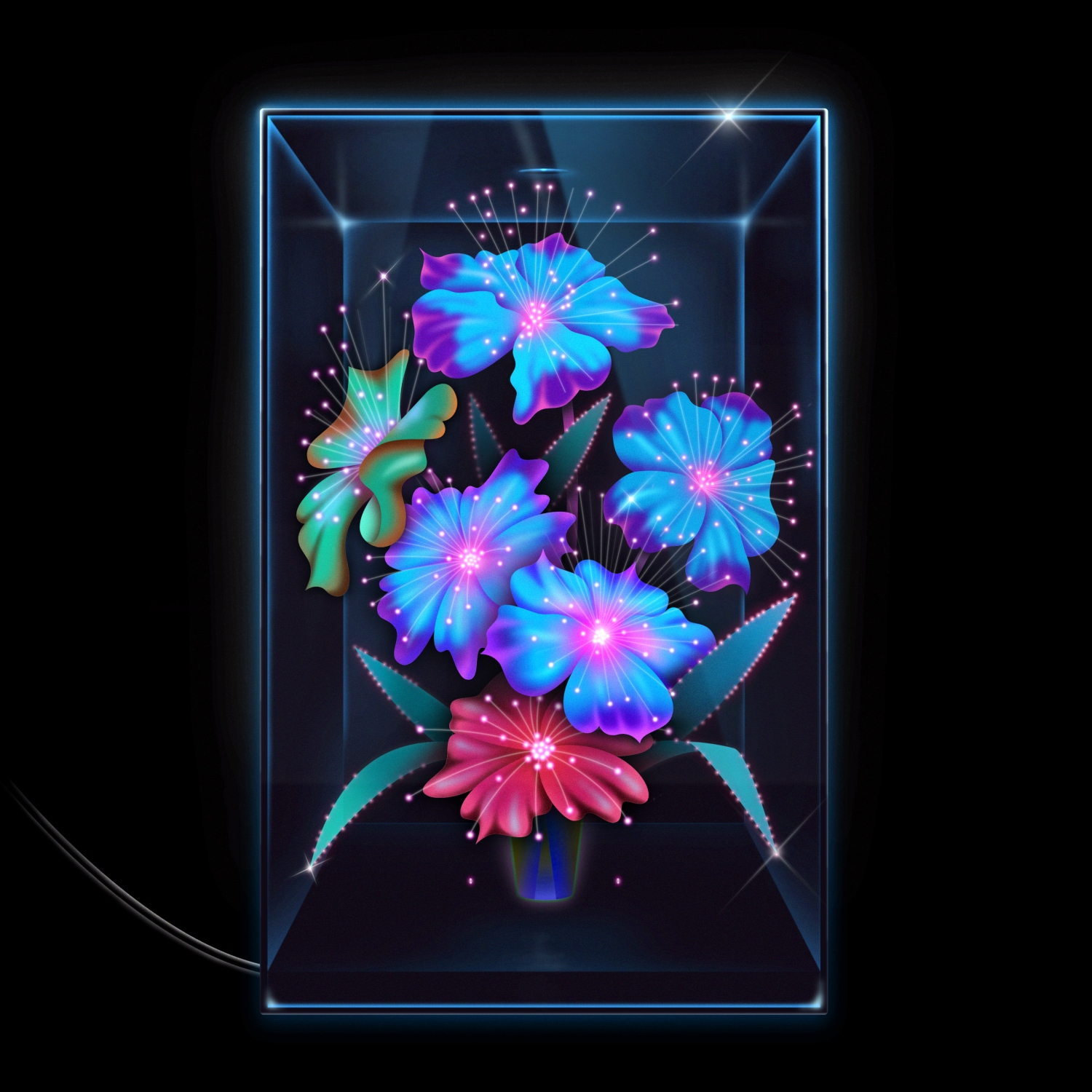Xenia Rubinos’ previous album, 2016’s Black Terry Cat, was a series of statements of Latinx identity – each showcasing the ways that they break out of the simplistic boxes that they’re often put in. It was also a riot. Punctuated by hip-gyrating rhythms and a vocal force that could command marching bands and cut down xenophobic commentators, it was an objectively fierce document from front to back.
On Rubinos’ new album, Una Rosa, the party is over but the zeal remains. It first seems an about-face so unexpected that listeners are likely to plummet straight through it on first listen without finding any of the expected rhythms to grab hold of. Further, deeper listens reveal that Rubinos’ objective of presenting a multi-faceted view of Latinx culture is still intact, but the means of delivery are completely different.
In fact, for the first three tracks, nary a beat is dropped. “ice queen” and the title track seem to be two parts of an introduction, bringing to attention the more theatrical, patient and nocturnal character of Una Rosa. It makes sense that this album was reportedly structured visually before it was put together musically, as this dual opening feels like the lights going down then the curtain rising to reveal a grand stage show – one that promises a lot of heavy, real-world drama.
“You better believe in love” emerges as the first sung line on the record in third track “Ay Hombre”, but this is not to signal some grand romance incoming. It could be seen as an overarching theme for Una Rosa, as, for the characters that populate the record, sometimes love is the only reason to keep going. “Ay Hombre” is a devastating heartbreak song that finds Rubinos portraying an abandoned woman, damning her escaped lover for toying with her devotion. Singing in Spanish, the dramatic turn provides an opportunity for her to show off her spectacular voice, which makes a stark combination with the frosty, almost campy, synth underscore.
Although Rubinos flits between Spanish and English – just as she morphs from singing to rapping to spoken word – there is never a loss of contact with her feelings, even for those of us who might not fully understand her words. Her transitions between language and style are seamless, and the carefully crafted and idiosyncratic arrangements help to guide our ears along with her mind and heart.
The first song that is sung (mostly) in English is “Working All The Time”, a two-minute blast that will sate those missing the extroverted energy of Black Terry Cat. A collage of bombastic sounds and vocal manipulations, “Working All The Time” simultaneously captures the frustration of living life on The Man’s clock and the explosion of relief when some freedom does magically appear. “Cógelo Suave” is similarly lively, as she tries to answer the question “how are you?” and turns her “well I don’t know” into a buoyant and chaotic bounce.
Not all the energetic tracks are so breezy though. The provocative “Who Shot Ya?” emerges from icy depths into a carnal protest song that references Breonna Taylor and people locked in cages as Rubinos spits at corrupt authorities.
However, the highlight of the first half – the aggressive, fiery ‘RED’ side – is its heaviest moment. “Saucade” is an alien rumba that finds Rubinos’ voice double tracked into a tight harmony that emphasises the universality of the person who’s “carrying weight for the both of us” and finds themselves crying out to god for help – a desperation that’s emphasised by the implementation of heavy bass stabs and cold atmospherics.
As things move into Act Two, the ‘BLUE’ side, the feeling is more of an elongated sigh compared to the pent up energy of the first half. It begins by finding Rubinos “tired as a mule” in “Darkest Hour”, a song that thrums like worn out calf muscles making exhausted steps (although the inclusion of some slasher strings at the end is a little off).
This fatigue carries through the rest of Una Rosa. Rubinos’ robust and glistening synth arrangements – combined with her extremely dextrous voice – ensure we are swept into a well of empathy, especially as some of the the songs feel like they are coming from an even more personal place.
“Don’t Put Me In Red” starts from Rubinos’ own annoyance at lighting techs and spirals out into the patriarchy at large, but, rather than raise the volume, she sings out her frustrations in a ravishing synth ballad. The undulating tones of “Did My Best” hit like waves of nausea as she processes the loss of someone dear, her voice deconstructed through voceded effects that only make her pain more searing. “What Is This Voice?” is Rubinos re-centring herself, rediscovering her power and worth, bringing Una Rosa back to a place of strength where she repeats “I am so…” with the word that could follow being a million possibilities.
This brings us to the curtain fall in “FIN”, which signals the end of the album but also links back to the opening “ice queen” with the same midnight chords. It seems to be Rubinos signalling that this is the end of one day, but the next follows hot on its heels, bringing with it another new stew of trials and stresses. Whatever it is, Rubinos has shown us a whole spectrum of emotions across Una Rosa that tell us she’s ready to take it face on.

